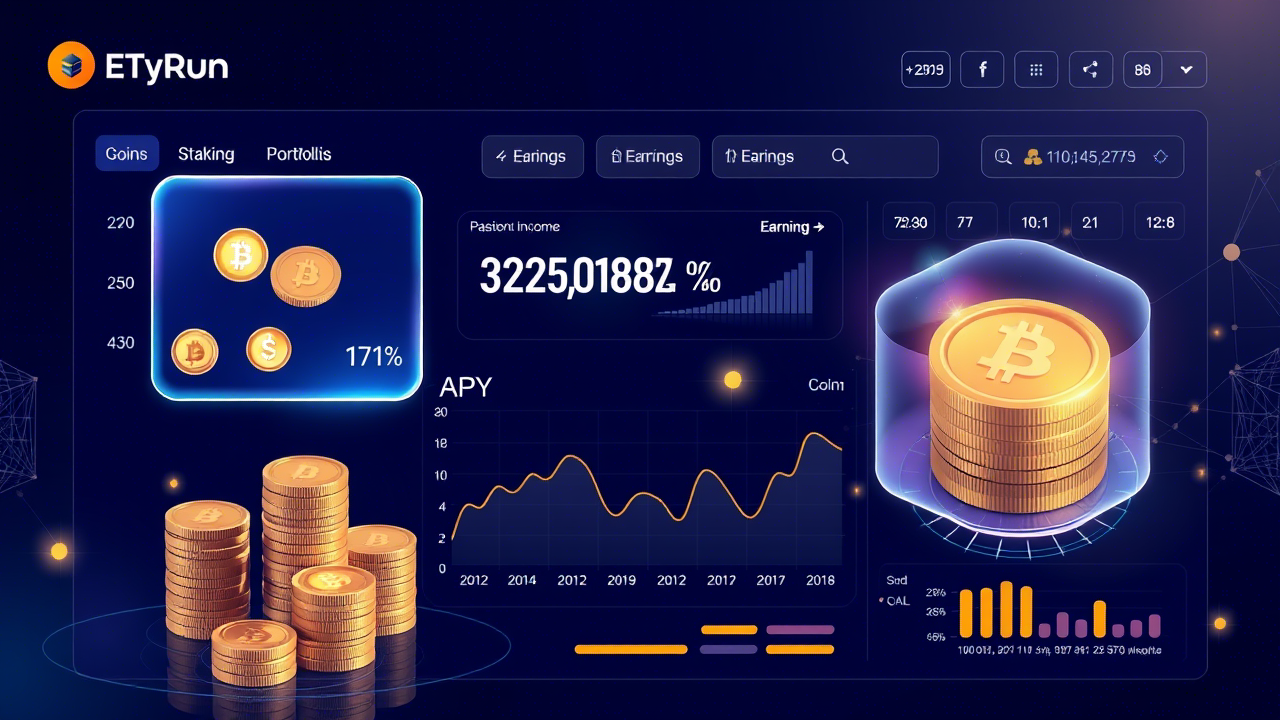The digital revolution has transformed how we conduct business, and blockchain technology stands at the forefront of this transformation. Among blockchain’s most revolutionary features are smart contracts—self-executing programs that automatically enforce agreements without intermediaries. These automated contracts represent a paradigm shift from traditional contract management, offering unprecedented efficiency, transparency, and cost reduction across industries.
Smart contracts have evolved from theoretical concepts to practical applications powering billions of dollars in transactions daily. From decentralized finance (DeFi) platforms to supply chain management systems, these automated blockchain applications are reshaping entire industries. Understanding smart contracts development has become essential for anyone looking to build the next generation of decentralized applications or leverage blockchain technology for business innovation.
The global smart contracts market continues expanding rapidly, with enterprises recognizing their potential to streamline operations, reduce costs, and eliminate the need for trusted third parties. As we explore the intricacies of smart contracts development, we’ll uncover how these automated contracts work, their practical applications, and the opportunities they create for developers and businesses alike.
Understanding Smart Contracts in Blockchain
Smart contracts are self-executing computer programs stored on a blockchain that automatically implement the terms of an agreement when predetermined conditions are met. Unlike traditional contracts that require human intervention or legal enforcement, smart contracts operate autonomously, executing their programmed instructions without the need for intermediaries.
These blockchain-based programs contain the terms of the agreement directly written into code. When specific conditions are satisfied, the smart contract automatically executes the agreed-upon actions, such as transferring funds, updating records, or triggering other contract functions. This automation eliminates the need for manual verification and reduces the possibility of human error or manipulation.
The immutable nature of blockchain ensures that once deployed, smart contracts cannot be altered or tampered with, providing security and trust to all parties involved. This characteristic makes smart contracts particularly valuable for applications requiring high levels of transparency and accountability, such as financial services, insurance claims, and supply chain tracking.
Smart contracts derive their power from blockchain’s decentralized architecture, where multiple nodes validate and execute the contract simultaneously. This distributed execution model ensures that no single party can manipulate the contract’s outcome, creating a trustless environment where parties can engage in business without knowing or trusting each other directly.
Smart Contracts vs Traditional Blockchain Technology
While blockchain technology provides the foundation for secure, decentralized data storage and transaction recording, smart contracts add a layer of programmable functionality that transforms blockchain from a static ledger into a dynamic computing platform. Understanding this distinction is crucial for blockchain development professionals.
Traditional blockchain primarily focuses on recording transactions and maintaining an immutable ledger. Bitcoin, for example, uses blockchain to track cryptocurrency transfers but has limited programmable functionality. The blockchain validates transactions, prevents double-spending, and maintains consensus across the network, but it doesn’t execute complex business logic.
Smart contracts extend blockchain capabilities by introducing programmable logic that can automatically execute complex operations based on predefined conditions. While blockchain ensures data integrity and immutability, smart contracts provide the computational framework for building sophisticated decentralized applications that can perform calculations, make decisions, and interact with external systems.
The relationship between smart contracts and blockchain is symbiotic. Blockchain provides the secure, decentralized infrastructure that smart contracts need to operate trustlessly, while smart contracts give blockchain the ability to support complex business applications beyond simple value transfers. This combination has enabled the development of entire ecosystems like decentralized finance, non-fungible tokens, and decentralized autonomous organizations.
Types of Smart Contracts in Blockchain
Smart contracts can be categorized into several types based on their functionality, complexity, and application domain. Understanding these categories helps developers choose the right approach for their specific blockchain development needs.
Application Logic Contracts serve as the primary interface for decentralized applications, handling user interactions and business logic. These contracts manage application state, process user requests, and coordinate with other contracts to deliver complete functionality. Most DeFi platforms rely heavily on application logic contracts to manage lending, borrowing, and trading operations.
Library Contracts provide reusable code modules that other contracts can import and use. These contracts promote code reusability and reduce development time by offering pre-built functions for common operations like mathematical calculations, string manipulation, or cryptographic operations. Library contracts help maintain consistency across applications and reduce the risk of bugs.
Storage Contracts specialize in data management, providing efficient ways to store and retrieve information on the blockchain. These contracts optimize gas costs for data operations and often implement advanced data structures like mappings, arrays, and custom data types. Storage contracts are particularly important for applications that need to manage large amounts of user data or historical information.
Proxy Contracts enable contract upgradability by separating the contract’s interface from its implementation. These contracts allow developers to fix bugs or add new features without losing the contract’s state or changing its address. Proxy contracts are essential for long-term blockchain applications that need to evolve over time while maintaining user trust and accessibility.
Smart Contracts Examples and Use Cases
Real-world smart contracts applications demonstrate the technology’s versatility and potential impact across various industries. These examples showcase how automated contracts can solve traditional business challenges while creating new opportunities for innovation.
Decentralized Finance (DeFi) represents one of the most successful smart contracts implementations. Platforms like Uniswap use automated market maker contracts to enable decentralized trading without traditional order books. These contracts automatically calculate token prices based on supply and demand, execute trades, and distribute fees to liquidity providers, all without human intervention. For those interested in exploring DeFi opportunities, understanding how to maximize DeFi crypto investment opportunities becomes crucial.
Insurance Claims Processing benefits significantly from smart contracts automation. Parametric insurance contracts can automatically trigger payouts when specific conditions are met, such as flight delays or natural disasters. These contracts connect to external data sources through oracles and execute claims payments instantly, eliminating lengthy manual review processes and reducing operational costs.
Supply Chain Management leverages smart contracts to track products from manufacture to delivery. These contracts can automatically update inventory records, trigger reorder processes, and verify product authenticity at each step of the supply chain. Companies like Walmart use blockchain-based supply chain contracts to trace food products and quickly identify contamination sources.
Real Estate Transactions can be streamlined through smart contracts that automate property transfers, escrow management, and payment processing. These contracts can hold funds in escrow until all conditions are met, automatically transfer property titles, and distribute payments to all parties involved, reducing transaction time from weeks to hours.
Smart Contracts in Ethereum Development
Ethereum established itself as the leading platform for smart contracts development, providing a robust ecosystem for building decentralized applications. The Ethereum Virtual Machine (EVM) serves as the runtime environment for smart contracts, enabling developers to write complex business logic using programming languages like Solidity.
Solidity, Ethereum’s primary smart contract programming language, offers object-oriented features that make it accessible to developers familiar with languages like JavaScript or C++. The language provides built-in support for blockchain-specific operations like cryptocurrency transfers, event logging, and interaction with other contracts. Solidity’s syntax and features continue evolving to meet the growing needs of the blockchain development community.
Ethereum’s smart contracts development tools include comprehensive frameworks like Truffle, Hardhat, and Foundry, which provide testing environments, deployment scripts, and debugging capabilities. These tools streamline the development process by automating common tasks like contract compilation, migration, and verification, allowing developers to focus on business logic rather than infrastructure concerns.
The Ethereum ecosystem also supports various smart contract standards like ERC-20 for fungible tokens, ERC-721 for non-fungible tokens, and ERC-1155 for multi-token contracts. These standards ensure interoperability between different applications and provide developers with proven patterns for common use cases, accelerating development and reducing security risks.
Top 10 Smart Contracts Applications
The smart contracts landscape includes numerous successful applications that demonstrate the technology’s maturity and practical value. These top applications span various industries and use cases, showcasing smart contracts’ versatility and impact.
Uniswap revolutionized decentralized trading through automated market maker contracts that enable peer-to-peer token swaps without traditional order books. The platform’s smart contracts manage liquidity pools, calculate token prices, and execute trades automatically, processing billions of dollars in volume while maintaining decentralized operation. Users can access Uniswap through various top crypto apps for secure trading and portfolio management.
Compound pioneered algorithmic money markets where smart contracts automatically adjust interest rates based on supply and demand. Users can lend crypto assets to earn interest or borrow against their holdings, with all operations managed by smart contracts that ensure proper collateralization and liquidation when necessary.
OpenSea dominates the NFT marketplace through smart contracts that facilitate the creation, buying, and selling of non-fungible tokens. The platform’s contracts handle auction mechanisms, royalty distributions, and ownership transfers, enabling artists and creators to monetize digital assets in previously impossible ways.
Chainlink provides decentralized oracle services that connect smart contracts to real-world data sources. These oracle contracts enable smart contracts to access external information like price feeds, weather data, and API responses, expanding the range of applications that smart contracts can support.
MakerDAO operates a decentralized autonomous organization through smart contracts that govern the DAI stablecoin. The platform’s contracts manage collateral deposits, stability fees, and governance voting, demonstrating how smart contracts can create self-governing financial systems.
Smart Contracts in Banking and Financial Services
The banking sector has begun recognizing smart contracts’ potential to transform traditional financial services by automating complex processes, reducing operational costs, and improving customer experiences. Banks are exploring smart contracts applications across various domains, from trade finance to regulatory compliance.
Trade Finance represents a significant opportunity for smart contracts adoption in banking. Letters of credit, traditionally requiring weeks of manual processing, can be automated through smart contracts that verify shipping documents, confirm delivery, and release payments automatically. This automation reduces processing time from weeks to hours while minimizing the risk of fraud or human error.
Cross-Border Payments benefit from smart contracts that can automate compliance checking, currency conversion, and settlement processes. These contracts can verify regulatory requirements, calculate fees, and execute transfers automatically, reducing the cost and complexity of international money transfers while ensuring compliance with local regulations.
Loan Processing can be streamlined through smart contracts that automate credit scoring, collateral verification, and loan disbursement. These contracts can access multiple data sources to assess creditworthiness, automatically approve qualifying applications, and manage loan repayments, significantly reducing processing time and operational costs.
Regulatory Compliance becomes more efficient through smart contracts that can automatically monitor transactions, flag suspicious activities, and generate compliance reports. These contracts can implement know-your-customer (KYC) and anti-money laundering (AML) requirements directly into the transaction processing logic, ensuring continuous compliance without manual intervention.
Blockchain Programming for Smart Contracts
Effective smart contracts development requires mastering blockchain programming concepts, tools, and best practices. Developers must understand both the technical aspects of blockchain development and the business logic required for their specific applications.
Solidity Programming forms the foundation of Ethereum smart contracts development. Developers must learn Solidity’s syntax, data types, and blockchain-specific features like gas optimization, event emission, and contract interaction patterns. Understanding Solidity’s security considerations is crucial for building robust smart contracts that can handle real-world value transfers. Before diving into smart contracts, it’s essential to understand cryptocurrency for beginners and the underlying technology.
Development Environment Setup involves configuring tools like Node.js, Truffle or Hardhat, and connecting to blockchain networks through providers like Infura or Alchemy. Developers need to understand how to compile contracts, deploy them to test networks, and interact with deployed contracts through web applications or command-line interfaces.
Testing Strategies are essential for smart contracts development due to the immutable nature of deployed contracts. Developers must write comprehensive unit tests, integration tests, and scenario tests to ensure contract behavior under various conditions. Testing frameworks like Mocha, Chai, and Waffle provide the tools needed for thorough smart contract testing.
Gas Optimization requires understanding how Ethereum charges for computational operations and optimizing contract code to minimize execution costs. Developers must balance functionality with efficiency, using techniques like storage optimization, function modifiers, and batch operations to reduce gas consumption without compromising security or functionality.
Building Decentralized Applications with Smart Contracts
Decentralized applications (dApps) combine smart contracts with user interfaces to create complete blockchain-based solutions. Building successful dApps requires understanding both blockchain development and traditional web development techniques.
Architecture Design involves structuring smart contracts to support the application’s functionality while maintaining security and efficiency. Developers must design contract interfaces, plan data storage strategies, and implement access control mechanisms that protect user funds and data while enabling the desired functionality.
Frontend Integration requires connecting web applications to smart contracts through libraries like Web3.js or Ethers.js. Developers must handle user wallet connections, transaction signing, and contract interaction while providing intuitive user experiences that hide blockchain complexity from end users. Many users access dApps through crypto wallets that provide secure storage and transaction capabilities.
User Experience Optimization focuses on making blockchain applications accessible to mainstream users. This includes implementing meta-transactions to pay gas fees on behalf of users, providing clear transaction status updates, and handling blockchain-specific edge cases like network congestion or failed transactions.
Security Considerations encompass both smart contract security and frontend security. Developers must implement secure coding practices, conduct thorough testing, and consider potential attack vectors like reentrancy attacks, integer overflow, and front-running vulnerabilities.
How to Make Money with Smart Contracts
Smart contracts create numerous opportunities for developers, entrepreneurs, and businesses to generate revenue through blockchain applications. Understanding these monetization strategies helps developers build sustainable blockchain businesses.
DeFi Protocol Development offers opportunities to earn revenue through transaction fees, governance tokens, and protocol-owned value. Successful DeFi protocols like Uniswap generate substantial revenue by charging small fees on trades and distributing governance tokens to early users and developers. Those looking to invest in DeFi should consider the best crypto to buy now for long-term growth.
NFT Marketplace Creation enables developers to earn revenue through listing fees, transaction commissions, and premium features. NFT marketplaces can implement royalty systems that provide ongoing revenue to creators and platform operators, creating sustainable business models for digital art and collectibles.
Consulting and Development Services provide opportunities for blockchain developers to monetize their skills by helping businesses implement smart contracts solutions. As more companies explore blockchain adoption, demand for experienced smart contracts developers continues growing, creating lucrative consulting opportunities.
Token Economics Design involves creating economic models for blockchain projects that incentivize user participation and generate value for token holders. Successful token economics can create significant value for project founders and early contributors while building sustainable blockchain ecosystems.
Security Best Practices for Smart Contracts
Security remains paramount in smart contracts development due to the immutable nature of blockchain and the high value often managed by these contracts. Implementing robust security practices protects users and maintains trust in blockchain applications.
Code Auditing should be conducted by independent security experts who can identify potential vulnerabilities and suggest improvements. Professional audits examine contract logic, test edge cases, and verify that contracts behave as intended under various conditions. Regular audits become essential as contracts evolve and handle increasing value.
Common Vulnerability Prevention involves understanding and protecting against known attack vectors like reentrancy attacks, integer overflow, and access control issues. Developers must implement proper checks, use established patterns like the checks-effects-interactions pattern, and leverage security libraries like OpenZeppelin to avoid common pitfalls.
Testing and Verification require comprehensive test suites that cover normal operations, edge cases, and failure scenarios. Formal verification tools can mathematically prove that contracts behave correctly under all possible conditions, providing additional confidence in contract security for high-value applications.
Upgrade Mechanisms should be implemented carefully to allow bug fixes and improvements while maintaining user trust. Proxy patterns and governance mechanisms can enable controlled upgrades while preventing malicious changes that could compromise user funds or data.
Gas Optimization Techniques
Gas optimization is crucial for smart contracts development on Ethereum and other networks where computational resources are limited and expensive. Efficient contracts provide better user experiences and lower operational costs.
Storage Optimization involves minimizing storage operations, which are among the most expensive on Ethereum. Developers can use techniques like packing multiple values into single storage slots, using events for historical data, and implementing lazy deletion strategies to reduce storage costs.
Function Optimization focuses on reducing computational complexity and gas consumption in contract functions. This includes using efficient algorithms, minimizing external calls, and implementing batch operations that process multiple items in a single transaction.
Code Structure Optimization involves organizing contract code to minimize deployment costs and execution overhead. Techniques include using libraries for common functionality, implementing function modifiers efficiently, and choosing appropriate data structures for specific use cases.
Network-Specific Optimizations consider the characteristics of different blockchain networks. Layer 2 solutions like Polygon or Arbitrum offer lower gas costs but may have different optimization considerations compared to mainnet Ethereum.
Future Trends in Smart Contracts Development
The smart contracts landscape continues evolving rapidly, with new technologies and approaches emerging to address current limitations and expand possible applications. Understanding these trends helps developers prepare for future opportunities.
Layer 2 Scaling Solutions are becoming increasingly important as they offer lower costs and faster transaction processing while maintaining security through mainnet settlement. Solutions like Optimistic Rollups and Zero-Knowledge Rollups enable more complex smart contracts applications by reducing the cost barrier for user adoption.
Cross-Chain Interoperability protocols are enabling smart contracts to interact across different blockchain networks, expanding the potential user base and liquidity for decentralized applications. Projects like Polkadot and Cosmos are building infrastructure that allows smart contracts to communicate and share data across multiple blockchains.
AI Integration represents an emerging trend where smart contracts incorporate artificial intelligence capabilities for decision-making and automation. This integration could enable more sophisticated applications like automated trading strategies, dynamic pricing models, and intelligent resource allocation systems.
Regulatory Compliance Features are becoming more important as governments develop frameworks for blockchain applications. Future smart contracts may include built-in compliance features, identity verification mechanisms, and reporting capabilities that satisfy regulatory requirements while maintaining decentralization benefits.
FAQ
What is a smart contract with example?
A smart contract is a self-executing computer program stored on a blockchain that automatically implements agreement terms when predetermined conditions are met. For example, a simple smart contract might automatically transfer payment to a freelancer when they submit completed work that meets specified criteria, eliminating the need for manual payment processing or escrow services.
What is the difference between smart contract and blockchain?
Blockchain is the underlying technology that provides a decentralized, immutable ledger for recording transactions, while smart contracts are programs that run on top of blockchain networks to execute automated business logic. Blockchain stores data and maintains consensus, while smart contracts add programmable functionality that can process that data and make decisions based on predefined rules.
Is Bitcoin a smart contract?
Bitcoin has limited smart contract capabilities compared to platforms like Ethereum. While Bitcoin can execute simple conditional transactions through its scripting language, it cannot run complex programmable logic like modern smart contract platforms. Bitcoin primarily functions as a digital currency rather than a full smart contract platform.
How do smart contracts work in blockchain?
Smart contracts work by encoding business logic into computer code that runs on a blockchain network. When someone interacts with the contract by sending a transaction, the blockchain network validates the transaction and executes the contract’s code. If the programmed conditions are met, the contract automatically performs the specified actions, such as transferring funds or updating records.
What programming languages are used for smart contracts?
The most popular smart contract programming language is Solidity, used primarily for Ethereum development. Other languages include Vyper (also for Ethereum), Rust (for Solana), and Move (for Aptos and Sui). Each blockchain platform typically supports specific programming languages optimized for its architecture and features.
Can smart contracts be modified after deployment?
Traditional smart contracts are immutable once deployed to the blockchain, meaning they cannot be changed. However, developers can implement upgrade mechanisms using proxy patterns or governance systems that allow controlled modifications while maintaining transparency and user consent for changes.
What are the main benefits of using smart contracts?
Smart contracts offer several key benefits including automation that reduces manual processing, transparency through open-source code, cost reduction by eliminating intermediaries, increased security through blockchain’s immutability, and 24/7 availability without human intervention. These benefits make smart contracts particularly valuable for financial services, supply chain management, and digital asset management.
How much does it cost to develop a smart contract?
Smart contract development costs vary significantly based on complexity, platform choice, and developer experience. Simple contracts might cost $1,000-$5,000 to develop, while complex DeFi protocols can cost $50,000-$500,000 or more. Additional costs include auditing ($10,000-$50,000), deployment fees, and ongoing maintenance expenses.
Final Thought
Smart contracts represent a fundamental shift in how we think about automation, trust, and business relationships in the digital age. As blockchain technology continues maturing and adoption grows across industries, smart contracts development skills become increasingly valuable for developers, entrepreneurs, and businesses seeking to leverage decentralized technologies.
The journey from understanding basic smart contracts concepts to building sophisticated decentralized applications requires dedication, continuous learning, and practical experience. However, the opportunities created by this technology—from revolutionizing financial services to enabling new forms of digital ownership—make the investment in learning smart contracts development highly worthwhile.
Success in smart contracts development depends not only on technical skills but also on understanding business needs, security considerations, and user experience design. As the ecosystem continues evolving with new platforms, tools, and use cases, developers who master both the technical and business aspects of smart contracts will be well-positioned to build the next generation of blockchain applications that transform industries and create new economic opportunities.
The future of smart contracts looks bright, with ongoing innovations in scalability, interoperability, and functionality expanding the possibilities for automated blockchain applications. Whether you’re a developer looking to enter the blockchain space, an entrepreneur seeking to build decentralized solutions, or a business exploring blockchain adoption, understanding smart contracts development provides the foundation for success in the decentralized future.
For those interested in exploring the broader cryptocurrency ecosystem, consider learning about crypto trading strategies that actually work and the best crypto exchanges in India to complement your smart contracts knowledge.
External Links:












Leave a Reply